Acoustic / Sound Insulation Scotland
Soundproof Your Home With Acoustic Insulation
Sound Insulation in Scotland
Sound insulation, also known as acoustic insulation or soundproofing, refers to the process of reducing or minimising the transmission of sound between spaces. It involves using various materials and techniques to absorb, block, or dampen sound waves, preventing them from traveling from one area to another. Sound insulation is commonly applied in buildings, homes, offices, or industrial spaces to create a quieter and more comfortable environment by reducing noise pollution and ensuring privacy between rooms or spaces.
How does sound insulation work?
Sound insulation works by employing various materials and techniques to reduce the transmission of sound waves from one area to another. Here’s how it works:
Sound Absorption: Certain materials, like acoustic panels, foam, or mineral wool, are designed to absorb sound waves. When sound waves hit these materials, they get trapped within the material’s fibers, converting the sound energy into heat. This absorption process reduces the sound’s intensity.
Sound Damping: Sound damping materials, such as mass loaded vinyl or damping compounds, are applied to vibrating surfaces like walls or ceilings. These materials add mass and density to the structure, reducing the vibrations caused by sound waves. This helps in minimising the transfer of sound energy.
Sound Blocking: Sound blocking materials, like dense walls, doors, or windows, prevent sound waves from passing through them. Thicker and heavier materials are more effective at blocking sound. Sealing gaps and cracks in walls, floors, and ceilings also enhances sound blocking capabilities.
Decoupling: Decoupling involves breaking the direct connection between two surfaces to prevent sound transmission. This is achieved by using resilient channels or isolating materials that interrupt the sound path, reducing the transfer of vibrations.
Airborne and Impact Insulation: Airborne sound insulation deals with sound traveling through the air, while impact sound insulation addresses sounds generated by impact, such as footsteps. Different materials and methods are used to combat these types of sound transmission.
By combining these principles and using appropriate materials, sound insulation reduces noise levels, creating quieter and more comfortable indoor environments. The specific techniques and materials used depend on the type of noise, the structure of the building, and the desired level of sound reduction.
Sound Insulation Installers Scotland
Installing sound insulation involves several steps to effectively reduce noise transmission within a building. Here are the typical installation steps for sound insulation:
Assessment: Evaluate the areas where sound insulation is needed. Identify sources of noise, such as neighboring rooms, outside traffic, or machinery.
Select Suitable Materials: Choose appropriate sound insulation materials based on the specific requirements of the space. Options include acoustic panels, foam, mineral wool, mass-loaded vinyl, damping compounds, and decoupling materials.
Prepare the Area: Clear the area where insulation will be installed. Remove furniture, decorations, or any obstacles that might interfere with the installation process.
Measure and Cut Materials: Measure the dimensions of the surfaces that need insulation. Cut the sound insulation materials to fit the measured spaces accurately.
Install Sound Absorption Materials: Apply sound-absorbing materials like acoustic panels or foam to the walls or ceilings. Ensure they are securely attached and cover the designated area entirely.
Apply Damping Compounds: If using damping compounds, apply them to vibrating surfaces such as walls or metal panels. Follow the manufacturer’s instructions for proper application.
Install Mass-Loaded Vinyl: For sound blocking, install mass-loaded vinyl sheets on walls, floors, or ceilings. Secure them tightly, creating a barrier against airborne noise.
Decouple Surfaces: Use resilient channels or decoupling clips to decouple surfaces. These prevent direct contact between walls or ceilings, minimising the transfer of impact noise.
Seal Gaps and Cracks: Seal any gaps, cracks, or openings in walls, floors, and ceilings with acoustic sealant. Proper sealing ensures sound doesn’t leak through structural gaps.
Reassemble the Space: Once the insulation materials are securely in place, reassemble the room, including furniture and other items.
Envirosmart Limited has a team of insulation installers who can provide you with sustainable acoustic insulation for your home that has soundproofing benefits. If your needs are primarily related to soundproofing, we can source acoustic mineral wool insulation to install.
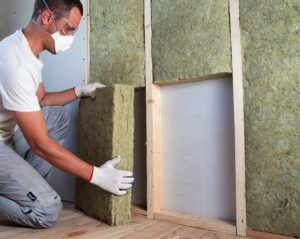
Best Insulation For Soundproofing
The best insulation for soundproofing depends on the specific noise related issues you are trying to address, as well as the area of your home or building where soundproofing is required. In most cases, Envirosmart Limited recommend mineral wool insulation for a combination of heat retention and soundproofing benefits.
Mineral Wool Insulation: Mineral wool, also known as rock wool or mineral fibre, is dense and effective at absorbing sound. It can be used in walls, ceilings, and floors to reduce airborne and impact noise.
We install Knauf mineral wool insulation including Knauf Earthwool and Rockwool products.
Acoustic Mineral Wool Insulation
Acoustic mineral wool insulation is a specialised type of mineral wool insulation designed specifically for soundproofing purposes. It is made from natural or recycled mineral fibres, such as basalt or slag, and is processed into dense and lightweight panels or rolls. This type of insulation is particularly effective at absorbing sound waves and reducing both airborne and impact noise.
Here are some key features and benefits of acoustic mineral wool insulation:
High Density: Acoustic mineral wool insulation is manufactured to be denser than regular mineral wool, enhancing its sound-absorbing properties. The high density allows it to effectively trap sound waves.
Excellent Sound Absorption: Acoustic mineral wool is designed to absorb a wide range of sound frequencies, making it suitable for reducing various types of noise, including speech, music, and machinery sounds.
Fire Resistance: Many acoustic mineral wool products are treated to be fire-resistant, ensuring safety in case of a fire. This feature is especially important in commercial and residential buildings.
Easy Installation: Acoustic mineral wool panels or rolls are easy to handle and can be installed in walls, ceilings, or floors. They can be cut to fit specific spaces, allowing for flexibility in installation.
Versatility: Acoustic mineral wool insulation is versatile and can be used in various applications, including theatres, recording studios, offices, homes, and industrial spaces. It can be installed behind walls, ceilings, or within partition walls to enhance soundproofing.
Environmentally Friendly: Many acoustic mineral wool products are made from recycled materials, contributing to sustainability and environmental conservation efforts.
Durable: Acoustic mineral wool insulation is durable and resistant to moisture, mould, and pests, ensuring long-lasting performance.
Compliance: Quality acoustic mineral wool insulation products adhere to industry standards and regulations, ensuring that they meet specific acoustic and fire safety requirements.
Video from The Soundproofing Store, explaining the benefits of acoustic mineral wool insulation
Proudly partnered with and trusted by...

Testimonial
What our clients say about us
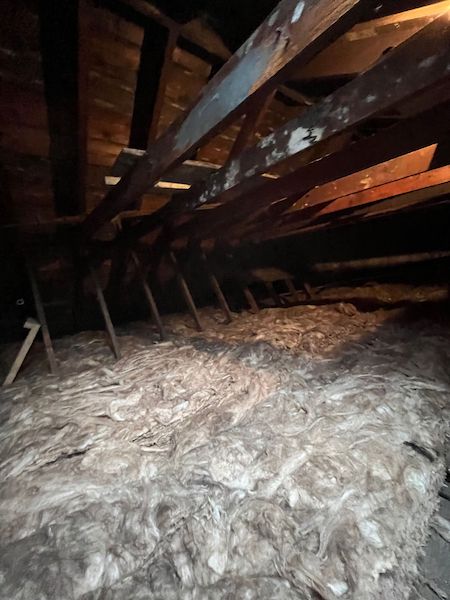
Initially we contracted Craig and his team to provide insulation for two attic rooms which are either freezing or much too hot and they ended up fitting a new kitchen too.
We can't recommend this firm highly enough, especially for the way they helped us through the unexpected discovery of damp.
Communication and customer service were excellent; friendly helpful worker were punctual, hardworking and cleaned up thoroughly.
Highly recommended.















Our Team
Sound Insulation Installers serving Scotland
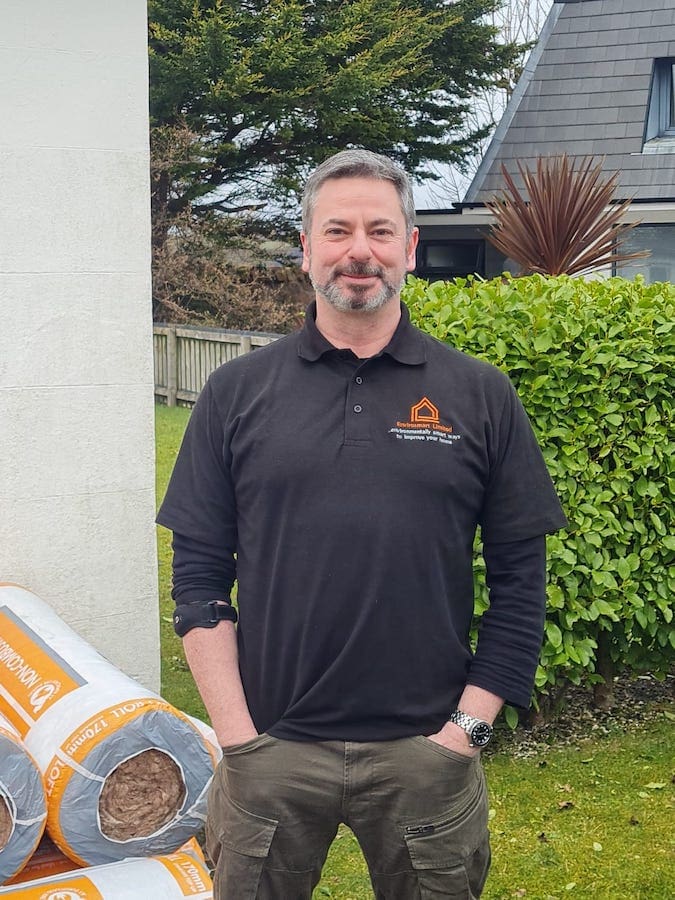
Craig Maxwell
Director
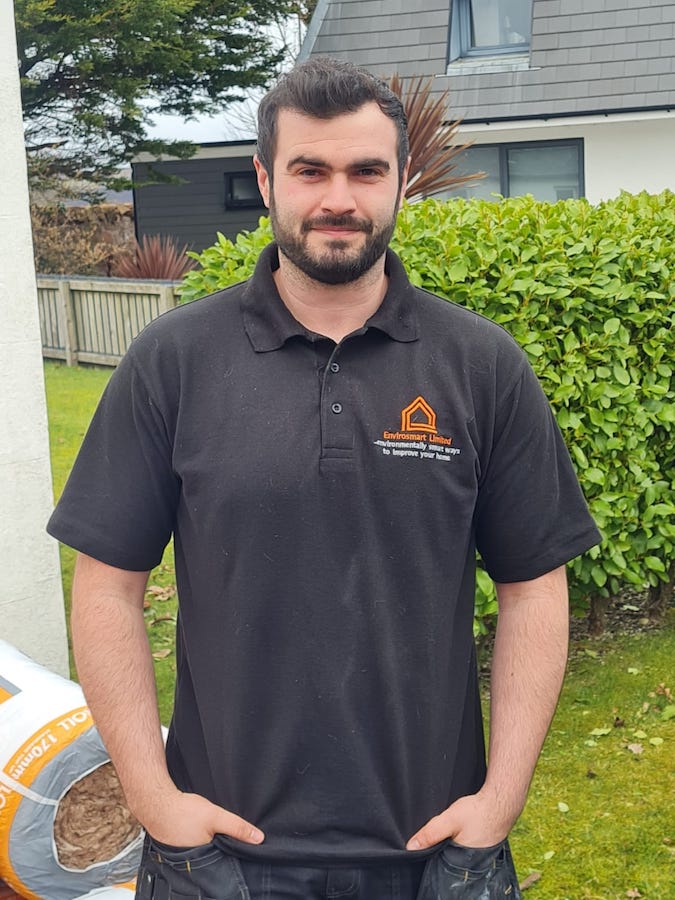
Allan Hughes
Installation Manager

Fraser Hughes
Installation Engineer
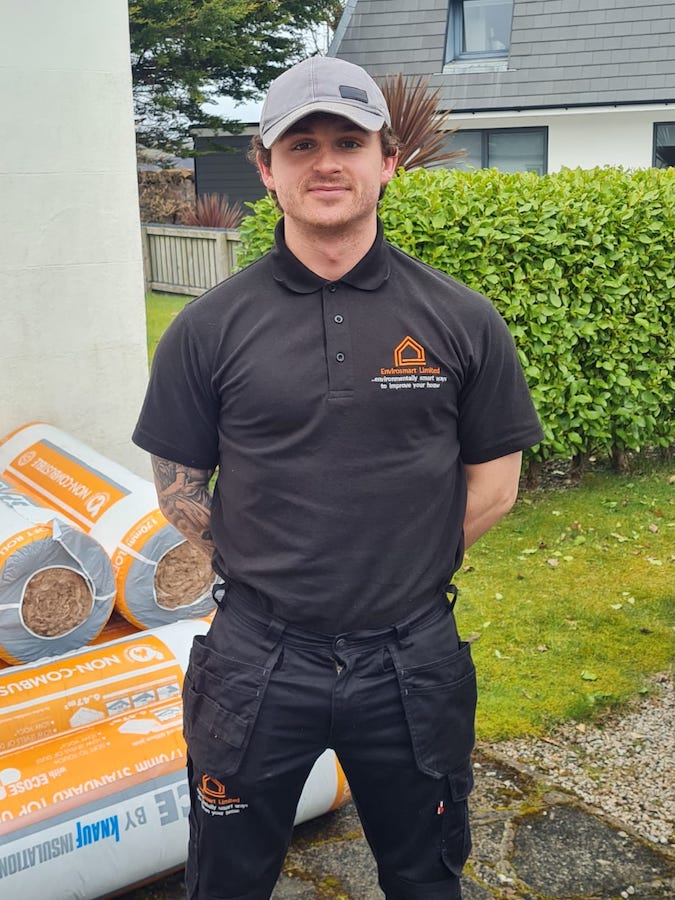
Calum Gordon
Installation Engineer
Say hello, and get a free home visit
We would be privileged to give you a free quote on the job you need doing. Get in touch today and arrange a free home visit.





